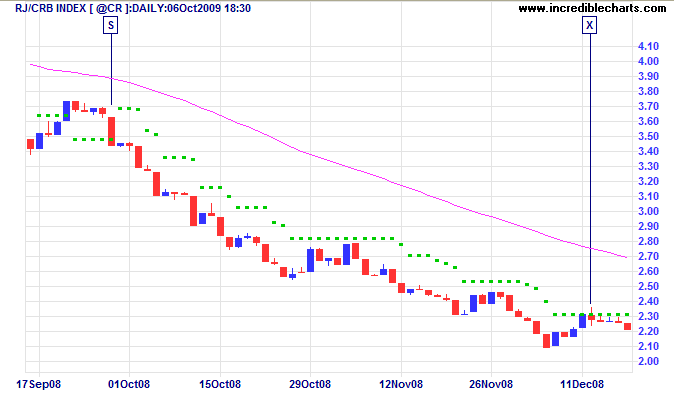Average true range atr is a technical analysis volatility indicator originally developed by j.
Average true range indicator formula.
Tracking price volatility with the average true range atr the average true range atr tracks volatility.
The concept of true range and calculation of atr average true range is confusing for many people as you are actually comparing three values instead of applying one exact formula.
The indicator does not provide an indication of price trend simply the degree of price volatility.
The first true range value is simply the current high minus the current low and the first atr is an average of the first 14 true range values.
High minus low the traditional range high minus previous close.
Before atr itself we must first calculate true range for each day because atr is a moving average of that.
Wilder recommended a 14 period smoothing.
This page is a detailed guide to calculation of true range.
This indicator is developed by j.
The average true range is an n period smoothed moving average smma of the true range values.
Welles wilder and shared in his 1978 book new concepts in technical trading systems stockcharts n d.
While this indicator was developed years before online trading it remains popular and useful to this day.
Average true range atr is a technical indicator measuring market volatility.
The formula is quite simple true range is the greatest of the following three price differences.
I ve tried to attach a few simple chart examples to better illustrate the point.
The real atr formula does not kick in until day 15.
Average true range atr is a volatility indicator that shows how much an asset moves on average during a given time frame.
Atr prior atr 13 current true range 14.
In plain english the atr formula multiplies the previous fourteen days average true ranges by thirteen.
The indicator can help day traders confirm when they might want to initiate a trade and it can be used to determine the placement of a stop loss order.
Even so the remnants of these first two calculations linger to slightly affect subsequent atr values.
Next it adds the most recent trading day s true range.
It is typically derived from the 14 day moving average of a series of true range indicators.
Atr is showing neither trend s strength nor its direction.
1 the atr has no upper or lower limit bounds like the rsi or slow stochastics.
The other element of the atr is the indicator is based on the price performance of the stock in question.
Finally it divides the outcome by fourteen.
As the indicator s mathematical formula suggests average true range cannot be used for trading signals on its own.

